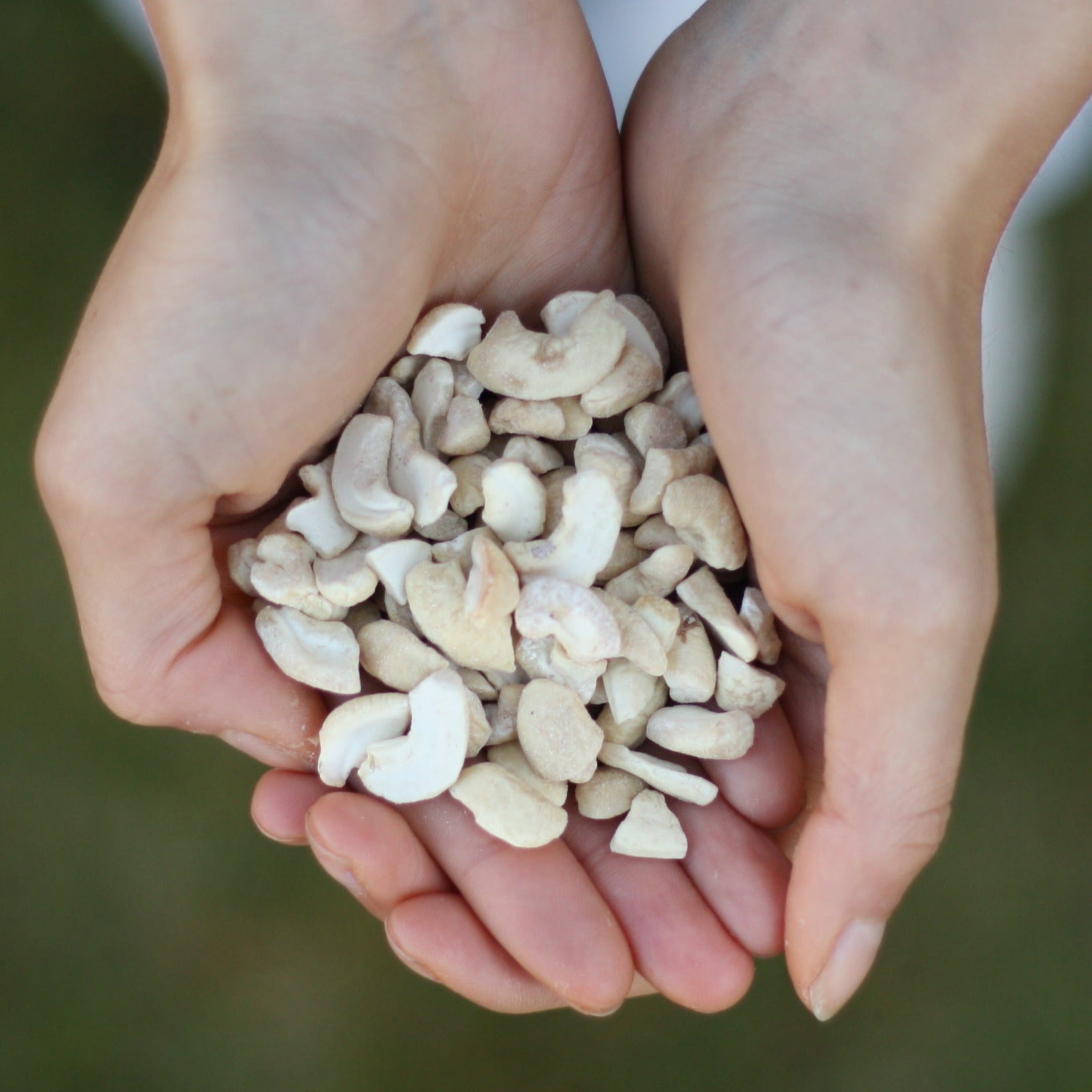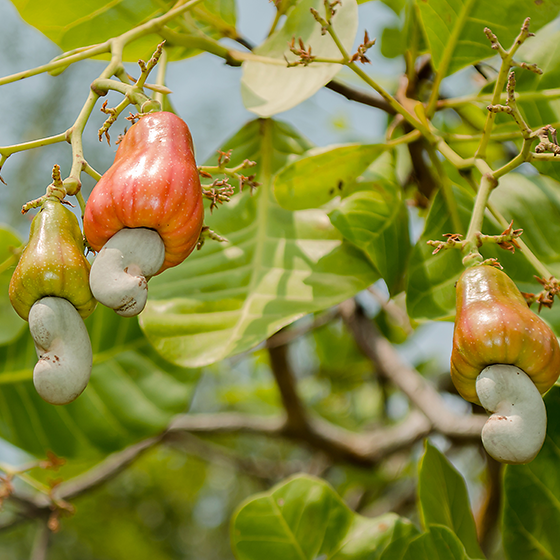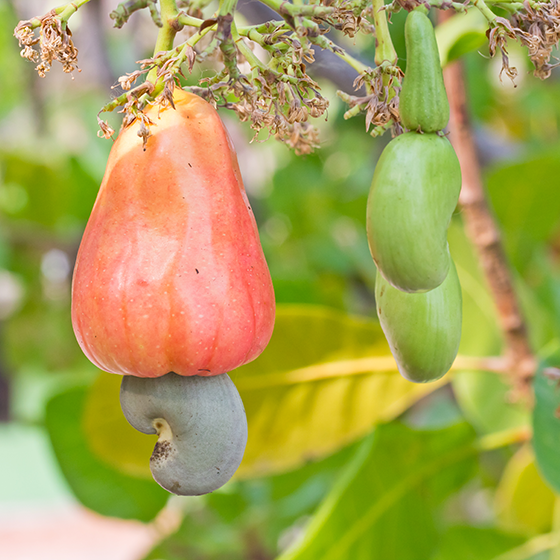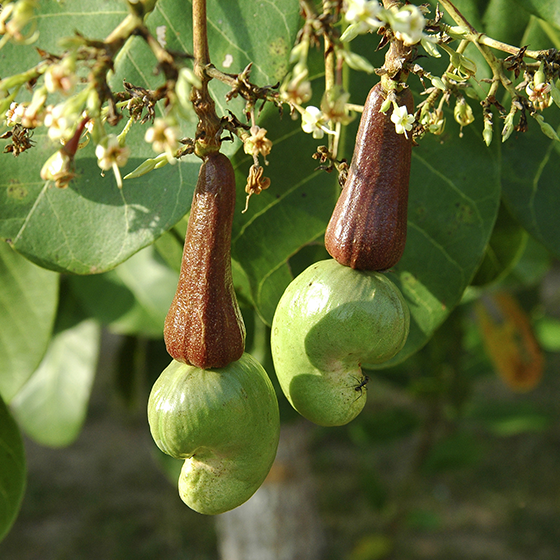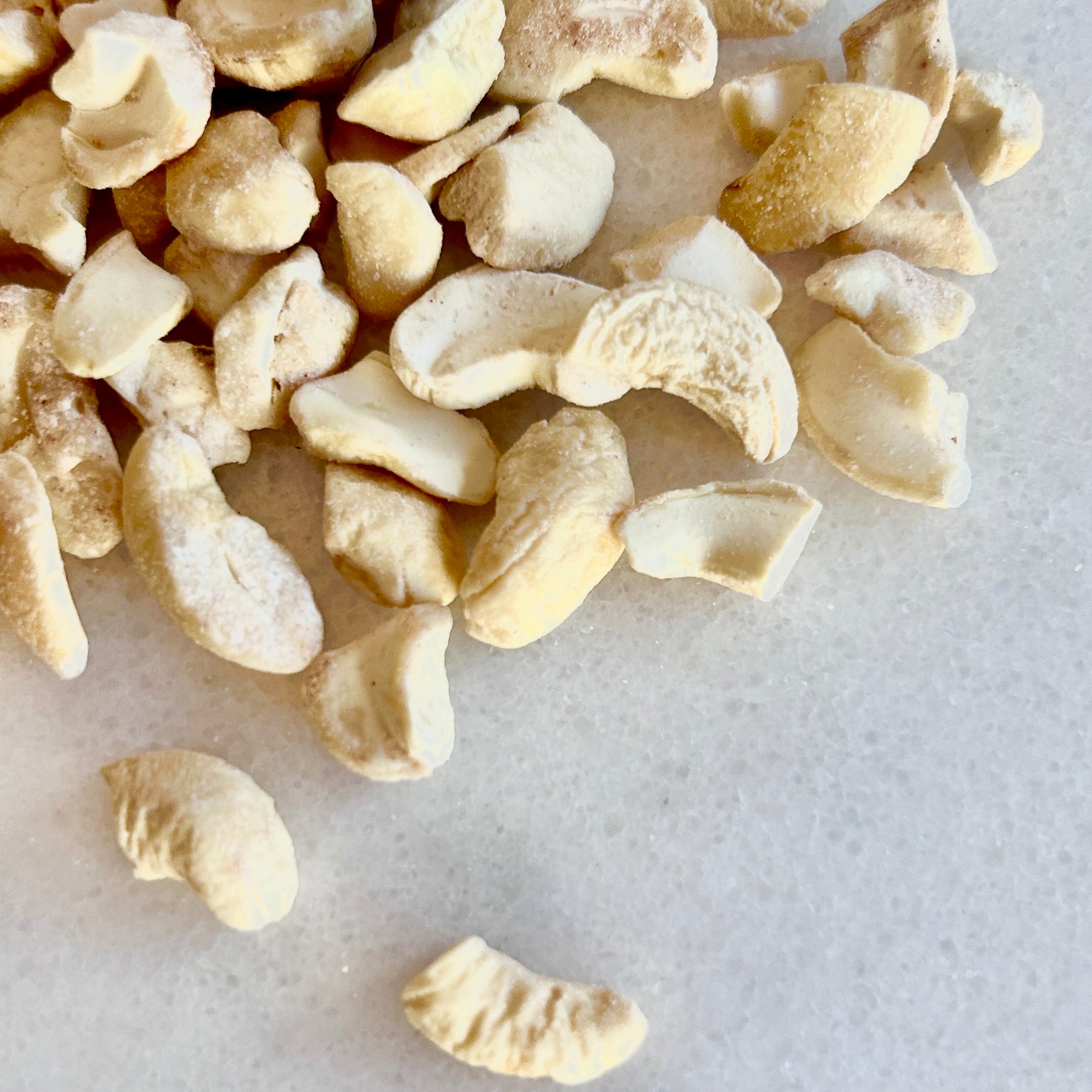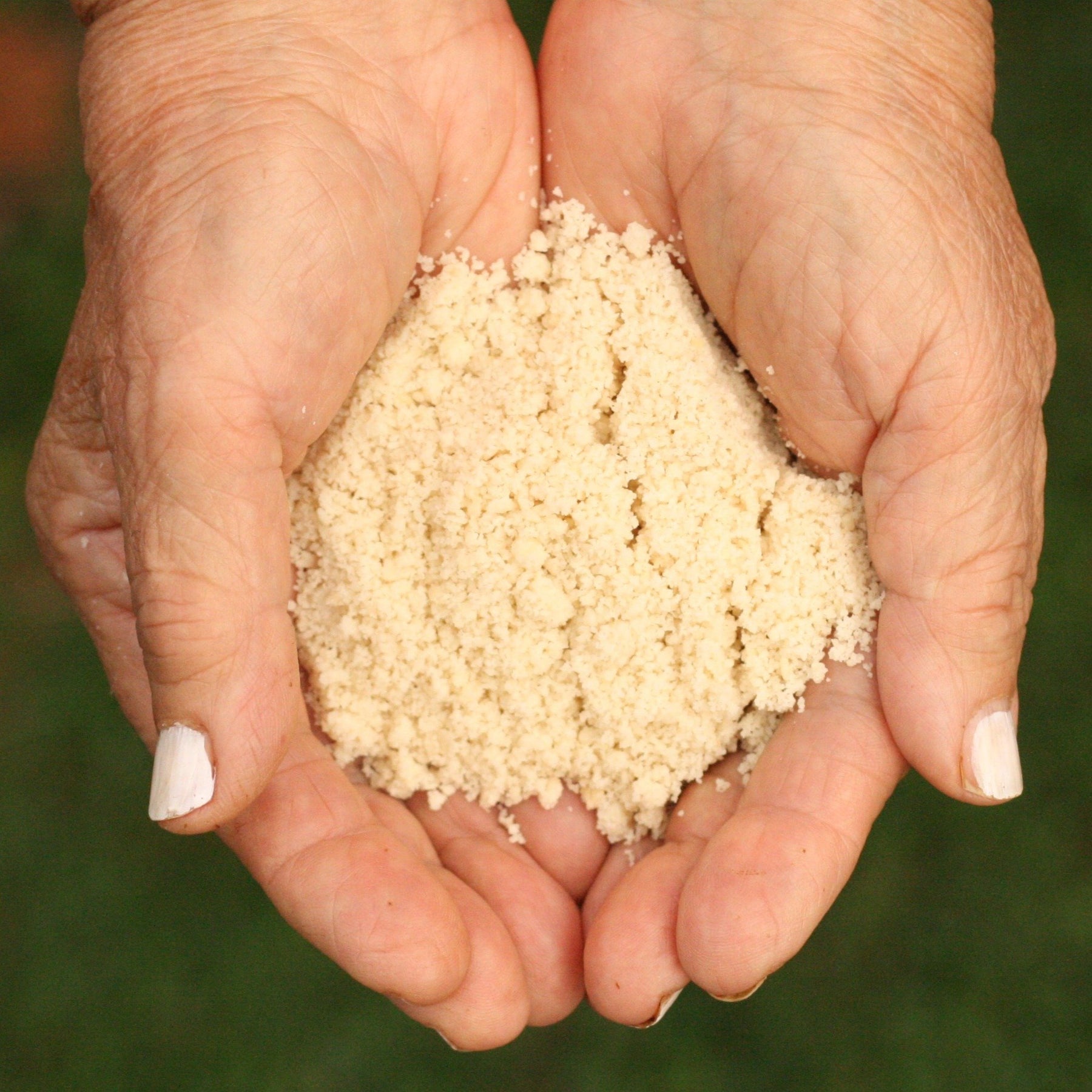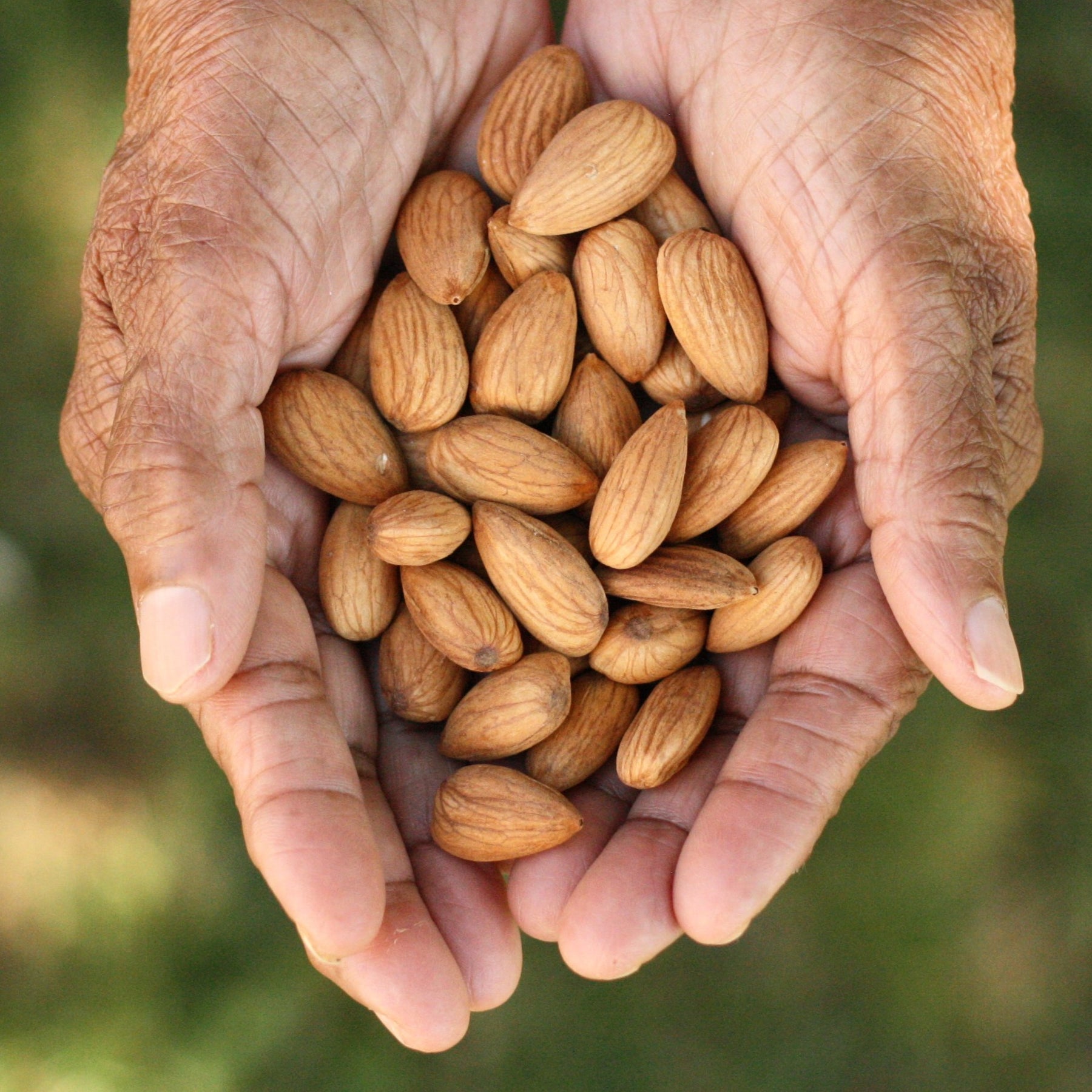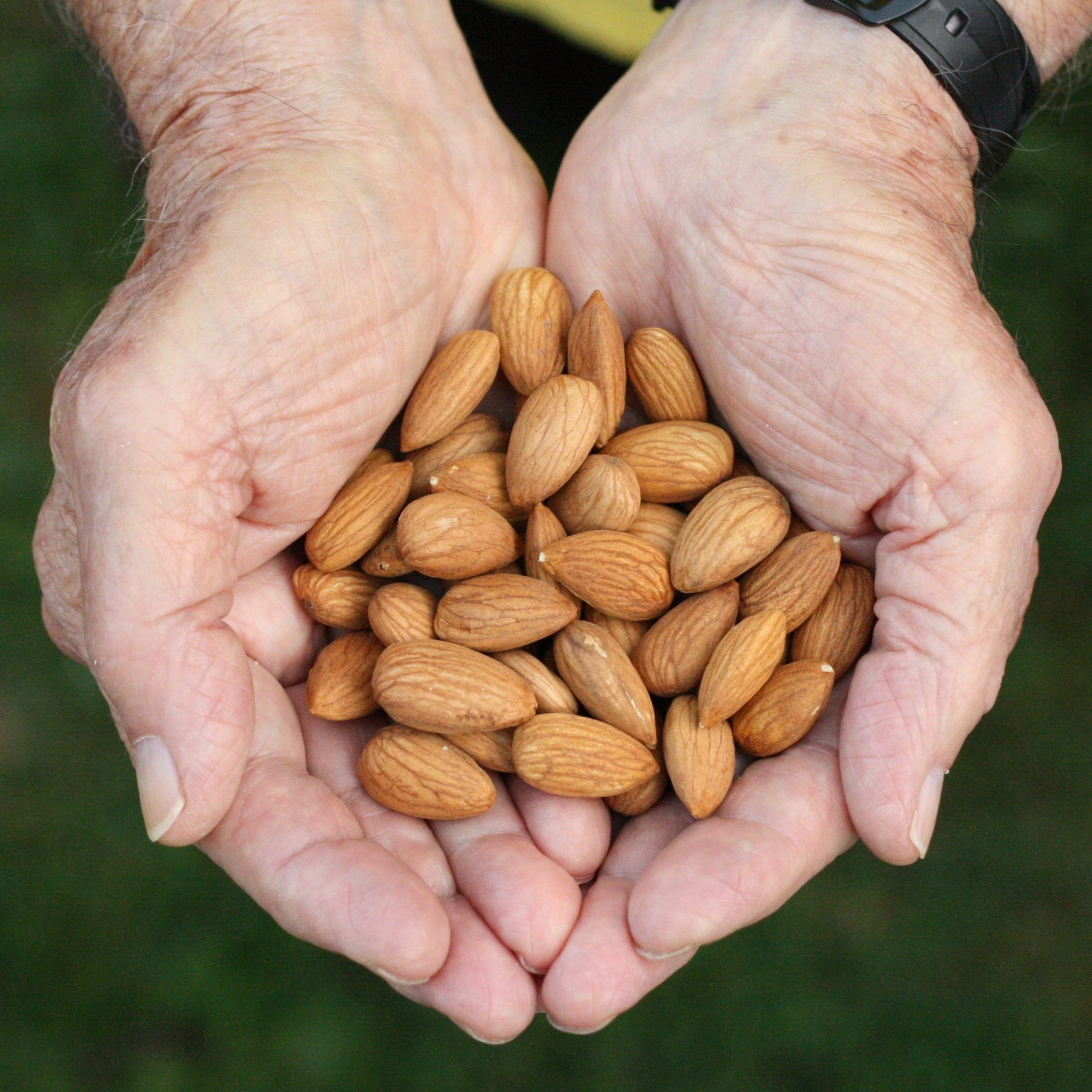No items in your cart
Continue ShoppingCertified organic cashews from Indonesia. These cashews have been hand cracked and are guaranteed to be raw. While they are not "certified fair trade" these cashews come from a farming collective that guarantees fair labour practices.
These pieces are perfect for making cashew mylk and cheeze with. They soften quickly and easily and are delicious.
The cashew industry has notoriously bad labour practices. Our cashews cost more because we purchase from a family farm that treats its workers well and pays fair wages. More about the cashew industry here.
Studies have shown that compared to conventional shelling methods, the method used to crack these cashews and keep them raw preserves significantly more beta-carotene, vitamin E, unsaturated fatty acids and thiamin.
More about organic here.
Always refrigerate your cashew nuts.
Gluten, peanut and soy free.
Cashew Nutrition here
Cashew Information here
Cashew Recipes
Cashew Creamsicle (popsicle) here
Cashew Cream - coffee cream alternative here
Lemon Parsley Cashew Dip here
Granola here
Cashew & Beet Dip here
Cashew butter here
Spiced nuts here
Coleslaw with spiced cashews here
Nutritional Information for Cashews
Cashews have less fat than most nuts and 82% of it is unsaturated. Its high oleic acid levels and high antioxidant content makes it excellent for heart health and has been shown to lower blood triglycerides.
1/4 cup of cashews has 98% of the DRI for copper, a seemingly unusual thing to want, but copper is an essential part of enzymes, skin collagen and elastin, bone health, the reduction of free radicals and energy production.
The proanthocyanidins found in cashews have been shown to starve tumours and stop cancer cell division.
Cashews are a great source of magnesium which helps with bone health and relaxation - especially for those who struggle with sleeping. They are also a good source of manganese, phosphorus and zinc.
At 22, they are a bit higher on the GI than most nuts, but still low compared to most foods.
Studies show improved weight management and lowered risk of coronary heart disease with eating nuts regularly as apposed to weight gain. 1 oz (~17 kernels) has 180 calories, 14 g of fat, 5 g of protein, 8 g of carbohydrates and 2 g of fibre.
General and Historical Information About Cashews
Have you ever seen a cashew in the shell? The reason you haven't is because the cashew is related to the poison ivy family and the shell has a powerful toxic residue that shouldn't be touched.
This tropical 'nut' is actually a seed botanically and grows with a large fruit called a 'cashew apple' (see pictures above). This fruit is edible and often made into a drink, jam or fermented into an alcohol. It is originally from Brazil but now grows all over the world in tropical climates.
Traditionally, many parts of the cashew plant have been used for things like snakebites, as moisturizer, as an anti-fungal and even to help with diarrhea.
The cashew is a close relative of the mango and pistachio and those flavours are often detected in a cashew's fruit.
References
Albala, Ken. Nuts a Global History. London: Reaktion Books, 2014. Print
Haas, Dr. Elson and Dr. Buck Levin. Staying Healthy with Nutrition.New York: Ten Speed Press, 2006. Print
Pitchford, Paul. Healing with Whole Foods. Berkeley: North Atlantic Books, 2002. Print
Tadayyon, Dr. Bahram. The Miracle of Nuts, Seeds and Grains. Xlibris, 2013. Print
WHFoods. "Cashews." http://www.whfoods.com/genpage.php?tname=foodspice&dbid=98
Bioactive Compounds in Cashew Nut Kernels: Effect of Different Shelling Methods https://www.researchgate.net/publication/43132916_Bioactive_Compounds_in_Cashew_Nut_Anacardium_occidentale_L_Kernels_Effect_of_Different_Shelling_Methods
